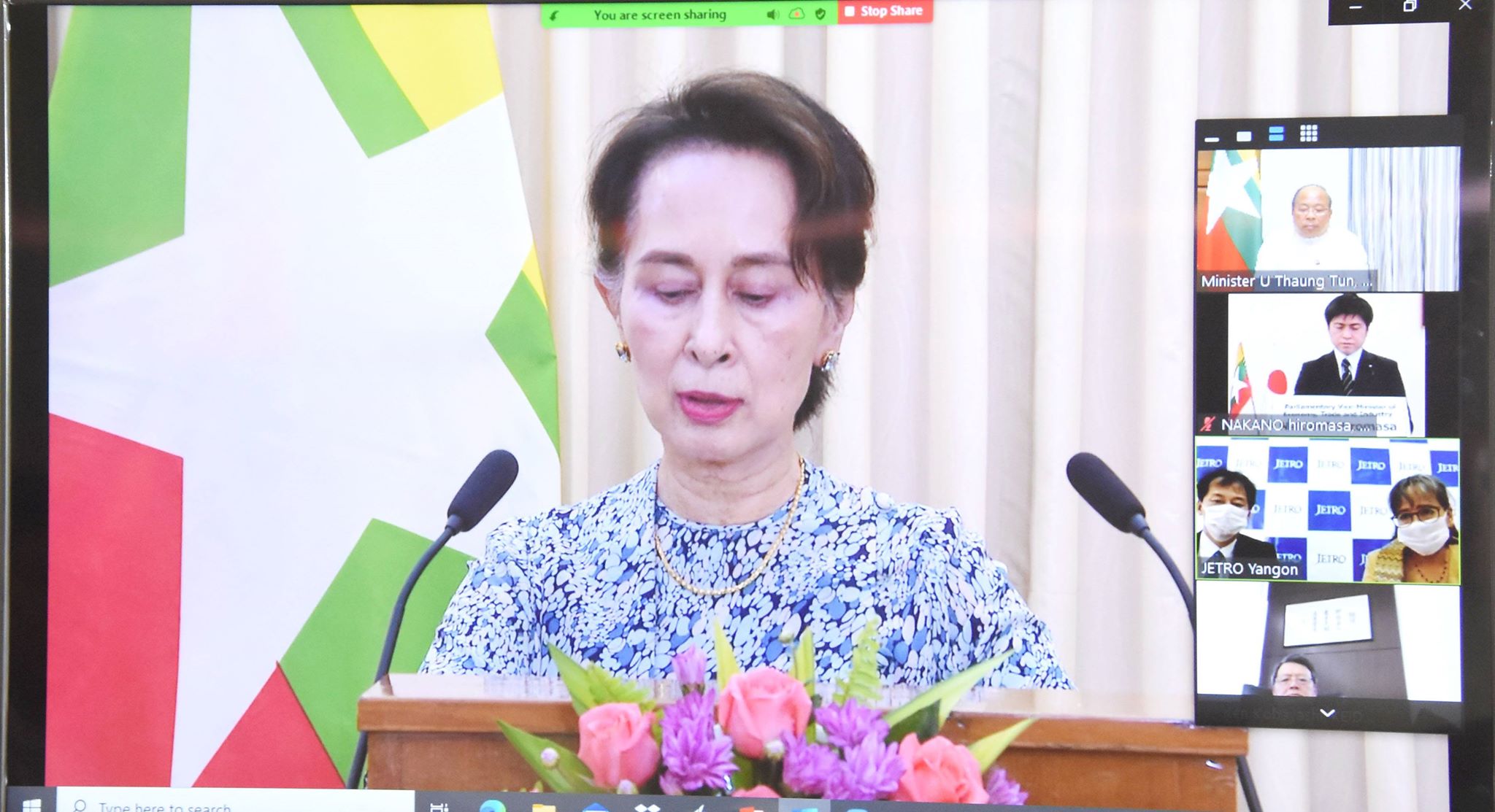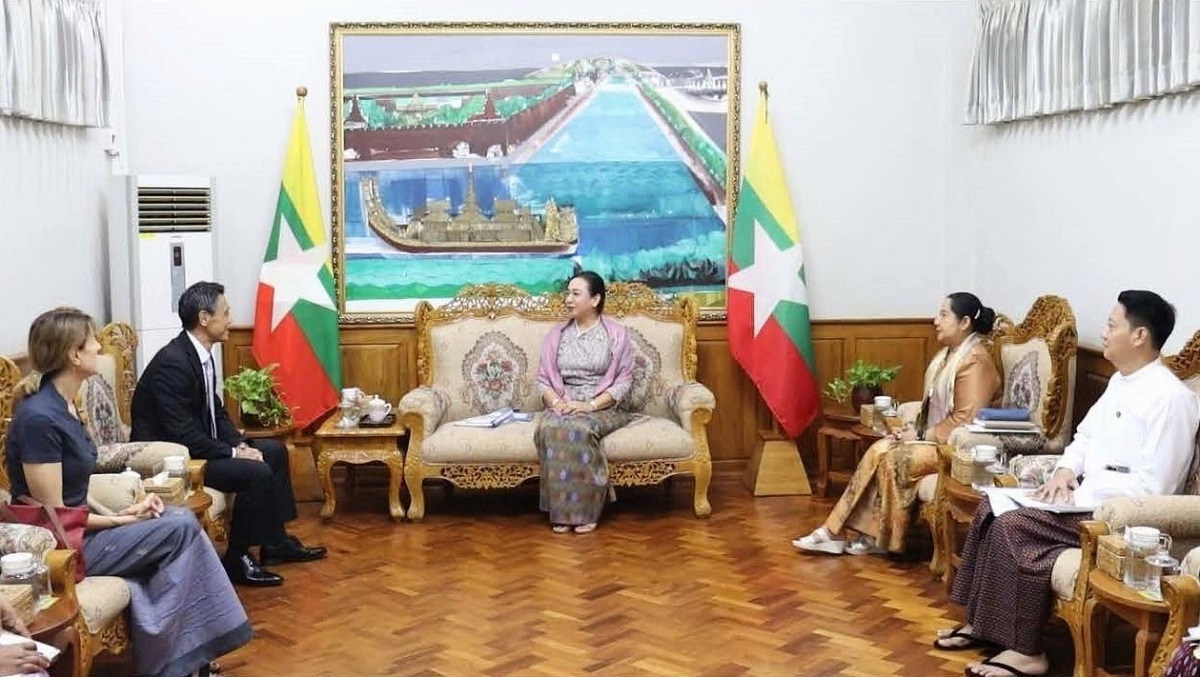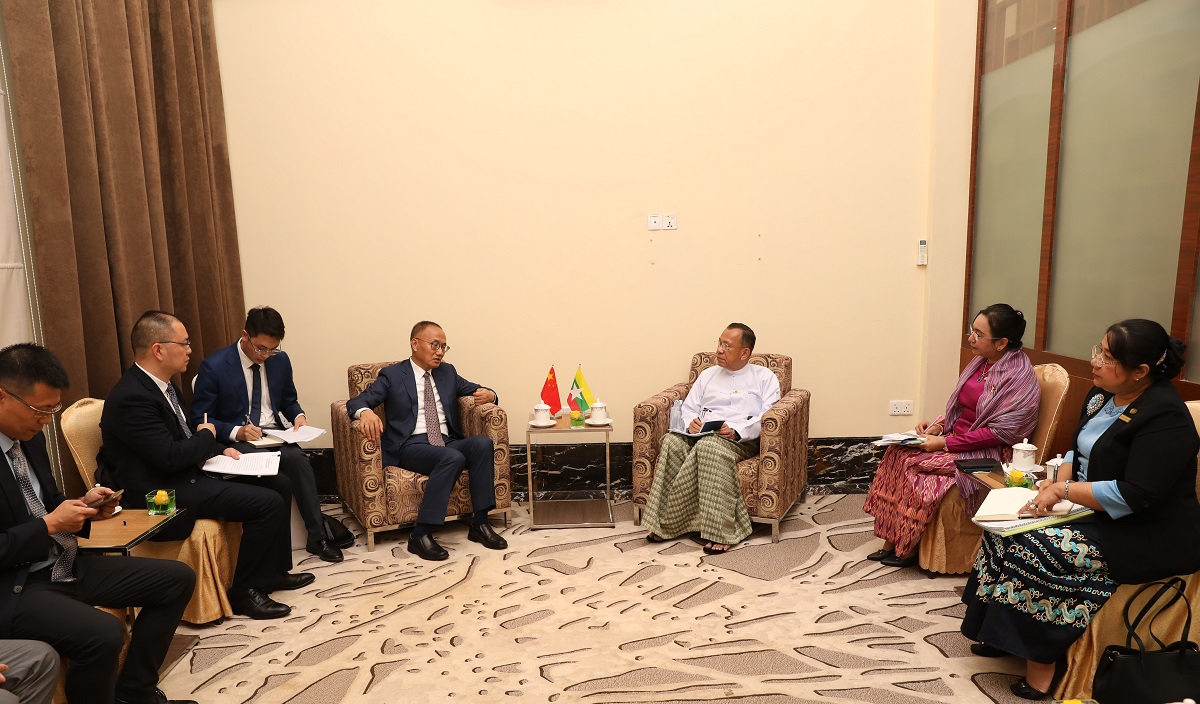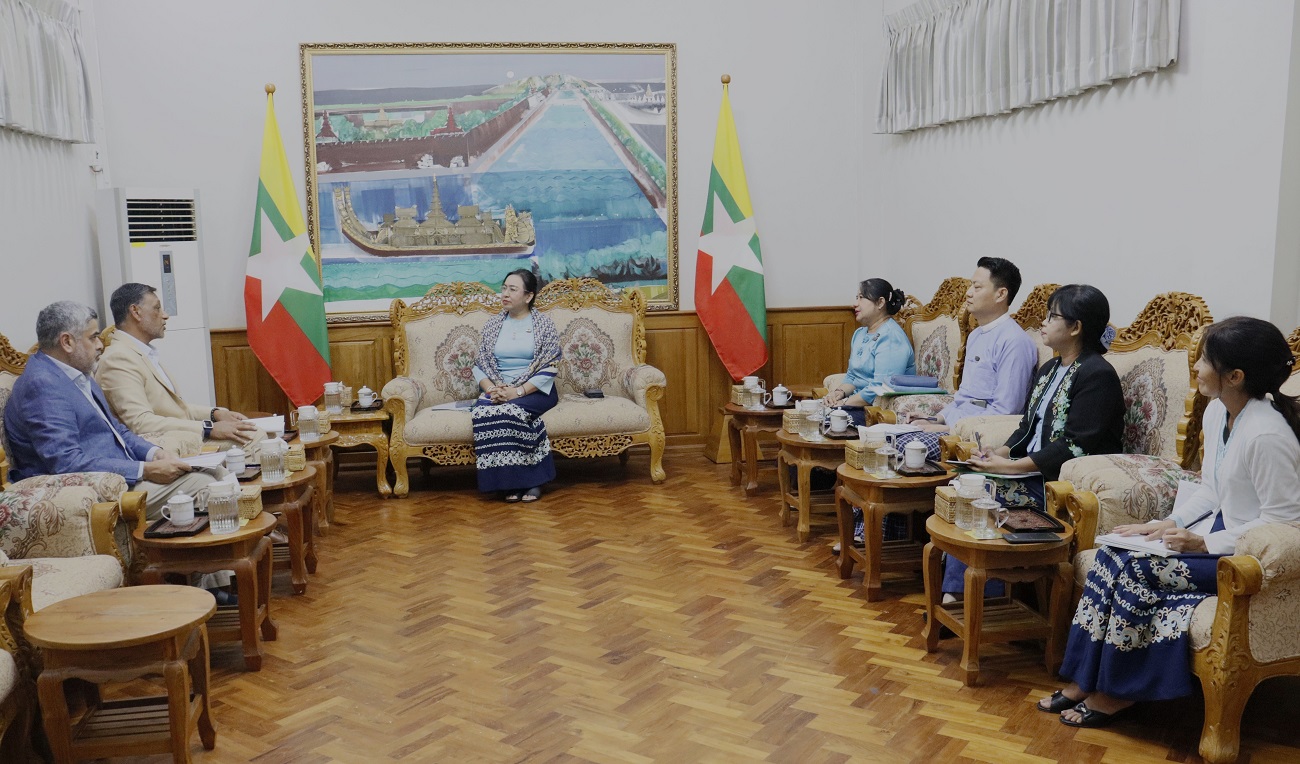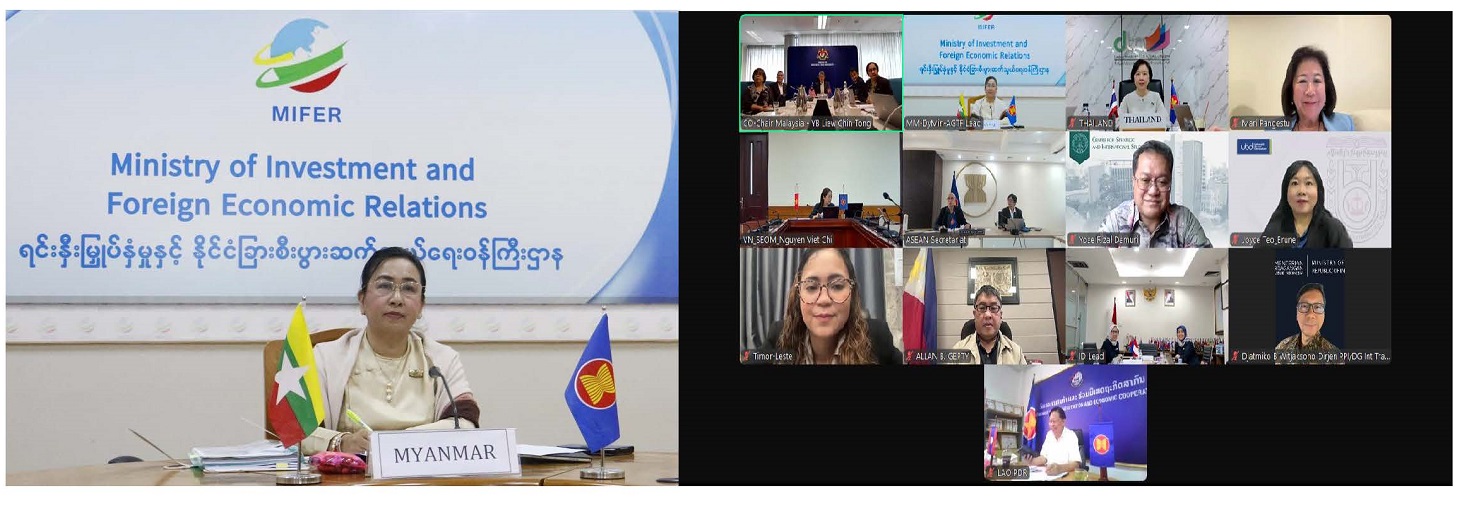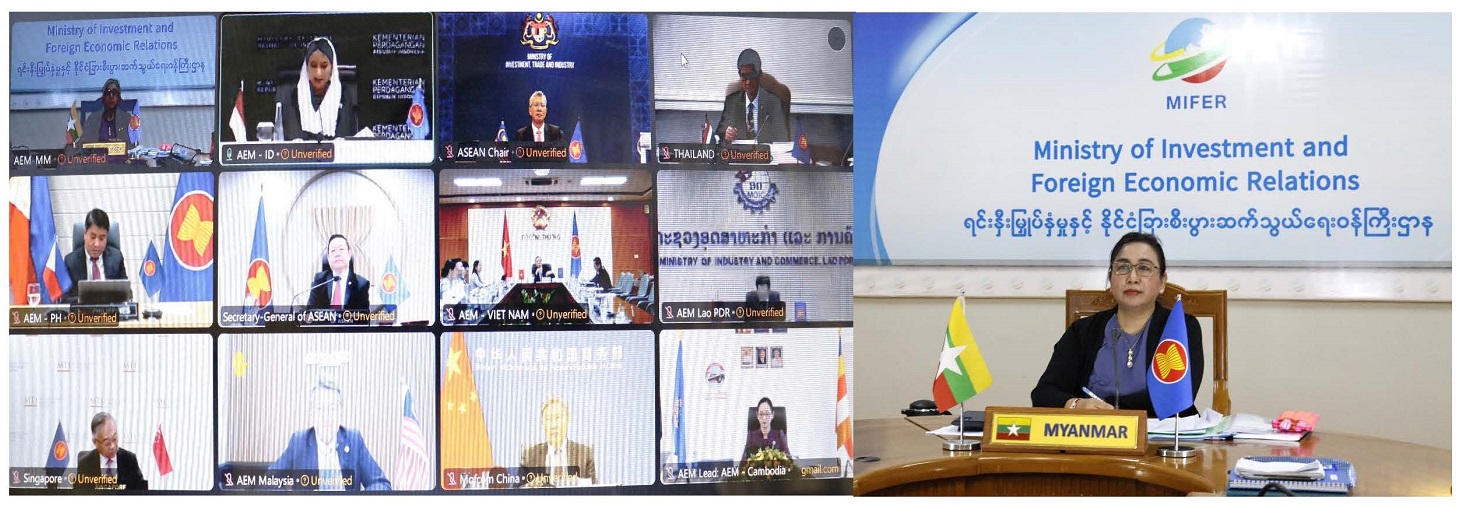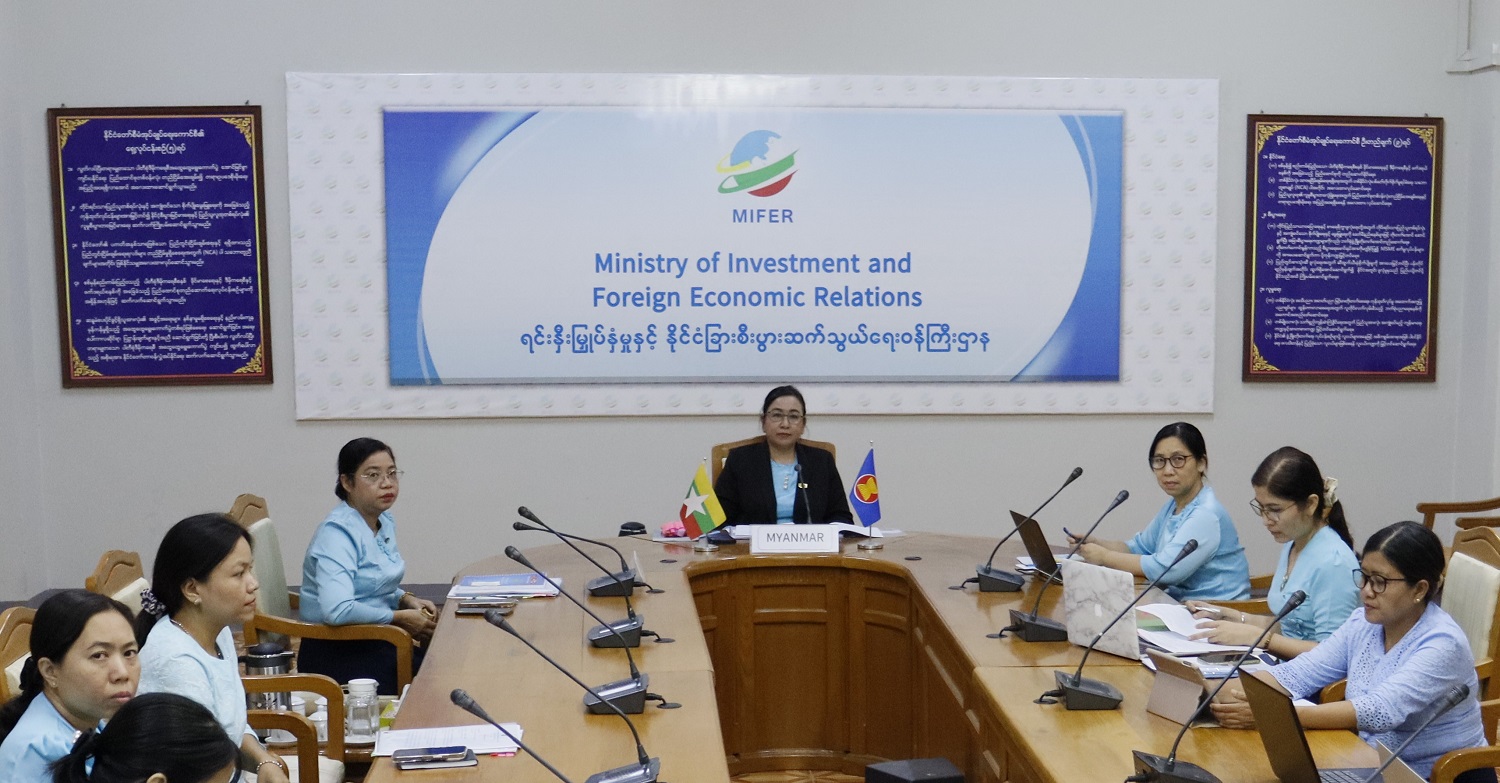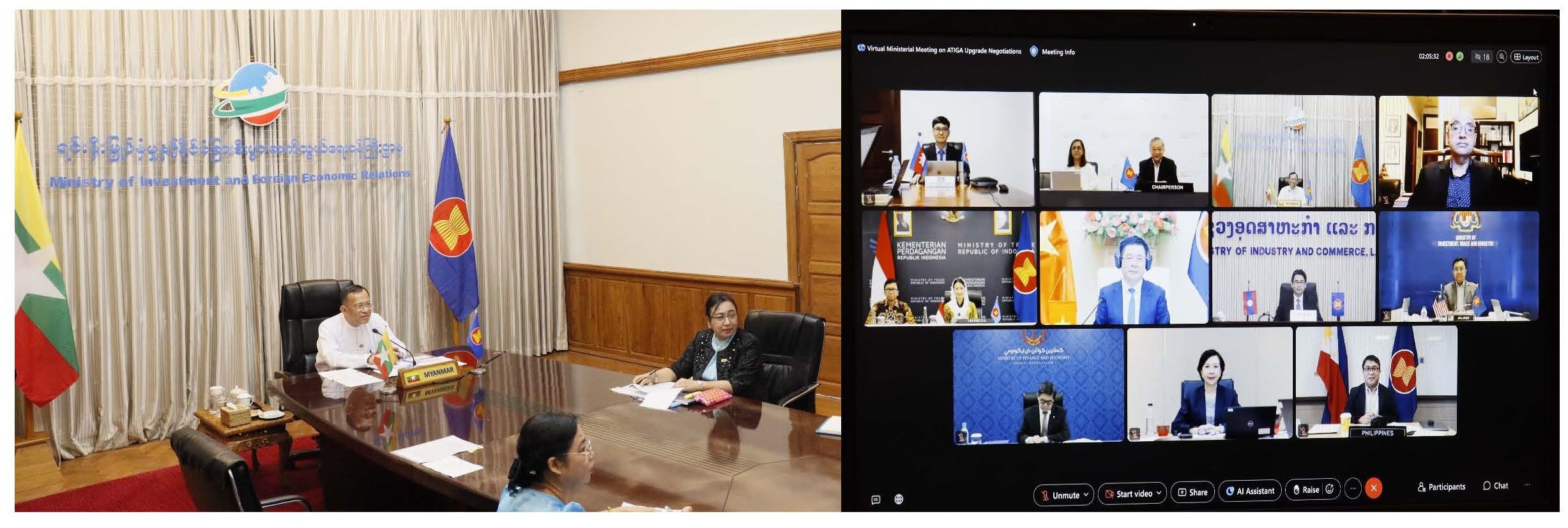Nay Pyi Taw, July 29
A Myanmar-Japan Investment Dialogue on Economic Recovery After COVID-19 and New Investment Opportunities was held today via video conference at the Ministry of Investment and Foreign Economic Relations in Nay Pyi Taw.
The State Counsellor Daw Aung San Suu Kyi delivered a keynote address via a pre-recorded video clip in which the State Counsellor highlighted the role of Japanese investment in enabling the creation of thousands of well-paid quality jobs, and that quality job creation would remain at the heart of the Myanmar Sustainable Development Plan.
As part of the virtual Myanmar-Japan Investment Dialogue, the Myanmar Government unveiled two new major infrastructure projects and associated investment opportunities to over 1,000 Japanese businesspersons in attendance.
Mr. Sasaki Nobuhiko, Japan External Trade Organisation Chairperson noted that Myanmar was becoming an increasingly attractive investment destination, that Japanese companies could today feel Myanmar’s newfound dynamism, and expressed hope that the event would spark further Japanese investment in Myanmar over the coming months and years.
H.E. Mr. Ichiro Maruyama, Japan’s Ambassador to Myanmar expressed thanks to the government and people of Myanmar for their successful efforts which have thus far prevented the spread of COVID-19 and affirmed that Japan would continue to stand with Myanmar in providing full cooperation and support to the country’s nation-building efforts.
H.E. Nakano Hiromasa, Japan’s State Minister of Economy, Trade, and Industry noted Myanmar’s geopolitical significance, and that Myanmar was proving to be a promising investment destination across a range of industries.
During a panel exchange, representatives from some of Japan’s largest corporations, namely Sumitomo, Mitsubishi, Marubeni, and Kawasaki exchanged views with senior Myanmar government and private sector officials regarding their experiences investing in Myanmar, with participants drawing attention to the Thilawa SEZs on-site ‘one-stop-shop’ investment services.
U Thaung Tun, Union Minister for Investment and Foreign Economic Relations provided further details on the newly unveiled West Yangon Industrial Park and Special Economic Zone in Mon State.
The Union Minister noted that the SEZ would be “…bigger and better connected than any other SEZ currently in operation anywhere in Myanmar.” The Union Minister also drew attention to how the new SEZ would connect both the Indian and Pacific Oceans, and the Thilawa SEZ to Da Nang in Vietnam via the Greater Mekong Sub-Region East-West Economic Corridor.
The Minister also clarified that both the West Yangon Industrial Park and the new SEZ shall undergo a world-class, transparent, open, and internationally competitive tender process.
Deputy Minister for the Ministry of Planning, Finance and Industry U Set Aung informed all that an international advisory body was currently being selected to assist with the identification of a company to invest in the construction of Western Yangon Industrial Park and that through collaboration with this international advisory body, investors would be selected through an open and transparent Swiss Challenge tender process.
Regarding the location of the new SEZ, the Deputy Minister explained how the new SEZ will be located in an area that can be easily connected to the Greater Mekong Sub-Region East-West Economic Corridor, in an area that would permit the construction of a deep-sea port and that could be easily connected to the Thilawa SEZ through the local transport networks.
To assist with location selection, an international advisory firm will also help prepare a feasibility study and master plan in a transparent manner such that the new SEZ and Thilawa SEZ could be connected as a single SEZ.
The Investment Dialogue was held as part of ongoing investment promotion efforts led by Myanmar’s Ministry of Investment and Foreign Economic Relations to promote new investment opportunities and provide updates on investment enabling reforms directly to Japanese businesspersons. Both sides used the opportunity to exchange views on how Myanmar and Japan could continue to promote greater mutual understanding and strengthen people-to-people and economic connections shared between two countries as we emerge into a post-COVID-19 era.

